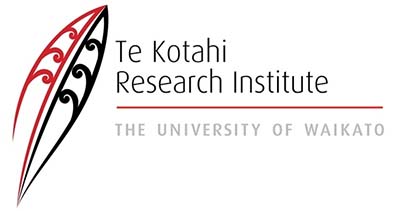Anō te pai, te āhuareka o te nohotahi o ngā tuakana me ngā teina i runga i te whakaaro kotahi
SING Aotearoa
SING Aotearoa is a week-long residential internship programme designed to develop an Indigenous understanding of genomics through knowledge and experience in wet-labs (biological samples, DNA), dry labs (computer analysis, biostatistics) and simulation labs (cultural and ethical scenarios). SING Aotearoa is part of the SING Consortium and hosted the inaugural SING Indigenous Genomics Conference in 2020. Learn more about SING here.
INDIGIDATA
Māori data sovereignty: A hot topic
Since the release of the book Indigenous Data Sovereignty: Towards an agenda in 2016, the interest in Māori data sovereignty has grown exponentially. Te Mana Raraunga and the Data Iwi Leaders Group have been strong advocates for Māori data and this led to the recent appointment of Meka Whaitiri as an Associate Minister of Statistics with responsibility for Māori data.
The key challenge moving forward is putting Māori data sovereignty into practice by developing useful mechanisms like the Māori Data Audit Tool and the Ngā Tikanga Paihere framework.
Te Kotahi Research Institute is an active contributor to this conversation. For example, read this interview with Maui Hudson about moving towards an equitable and inclusive digital future, and Computerworld's piece on our Tikanga in Technology project.
Te Mana Raraunga, the Māori Data Sovereignty Network, is explored in the Health Research Council's story on Driving indigenous data sovereignty and in Maiam nayri Wingara's History of Indigenous data sovereignty.
Taking CARE of Indigenous data
The Global Indigenous Data Alliance has been actively promoting Indigenous data sovereignty and Indigenous data governance in international forum. They released the CARE Principles for Indigenous Data Governance in 2019 to ensure values that resonated with Indigenous communities are included when data is shared.
Work to put these principles into practice is underway with the Research Data Alliance through the International Indigenous Data Sovereignty Interest Group. We have also engaged with the Open Data Charter who see the CARE principles as supporting Nations to address issues of Indigenous data governance. This work has also extended into the development of an IEEE recommended practice for the provenance of Indigenous peoples' data.
For more information, see this Data Science Journal article: The CARE principles for Indigenous data governance.
Indigenous data sovereignty
ENRICH supports development of Indigenous based protocols, Indigenous centered standard setting mechanisms, and machine-focused technology that inform policy, transform institutional and research practices, and reform relationships between Indigenous communities and wider society.
Indigenous genomics
Local Contexts is an initiative to support Native, First Nations, Aboriginal, and Indigenous communities in the management of their intellectual property and cultural heritage specifically within the digital environment. Local Contexts delivers Traditional Knowledge Labels, which connect tikanga to mātauranga Māori in digital environments, and Biocultural Labels, which maintain indigenous rights to data derived from genetic resources.
View March 2021 webinar Recognising Indigenous Rights in Digital Sequence Information by Maui Hudson
